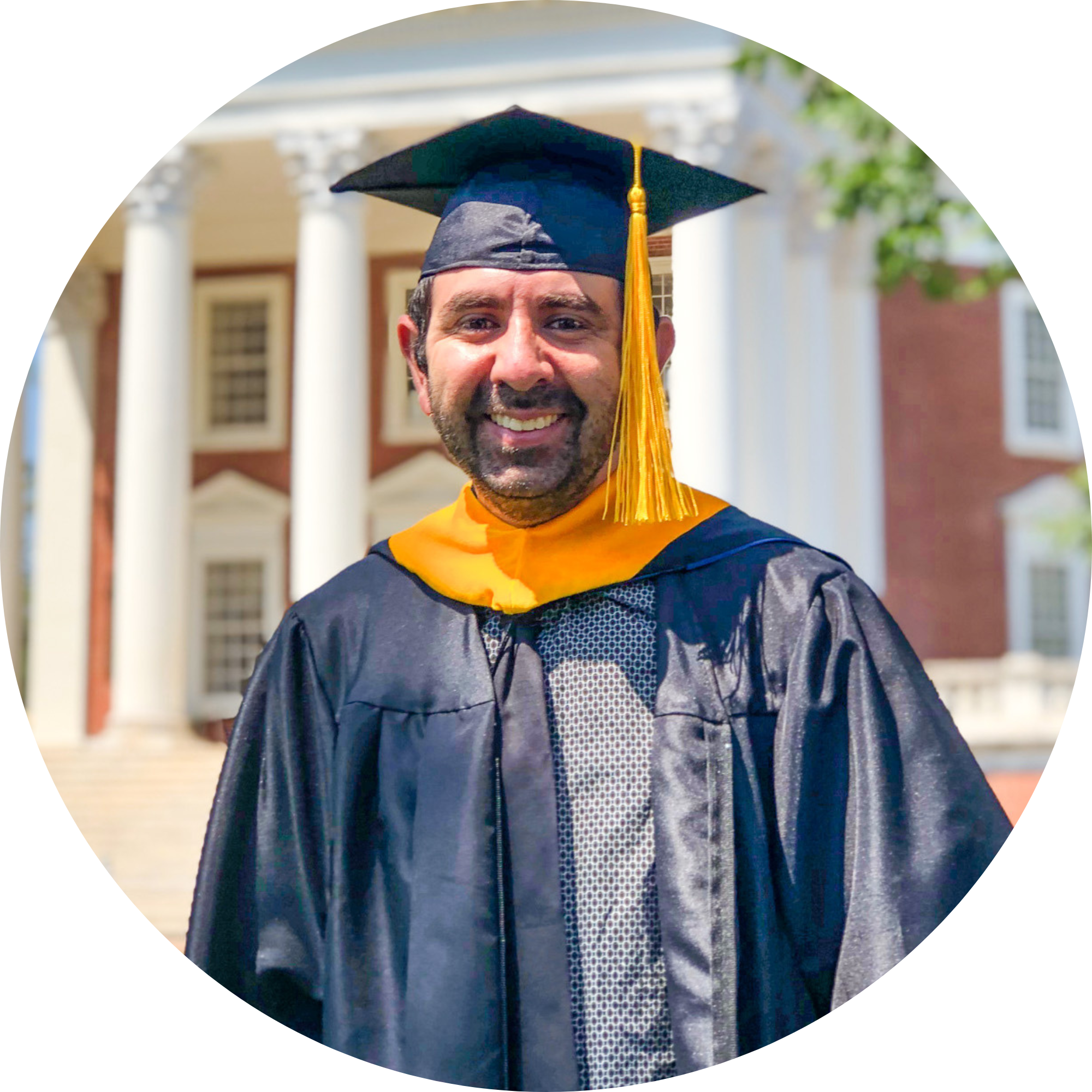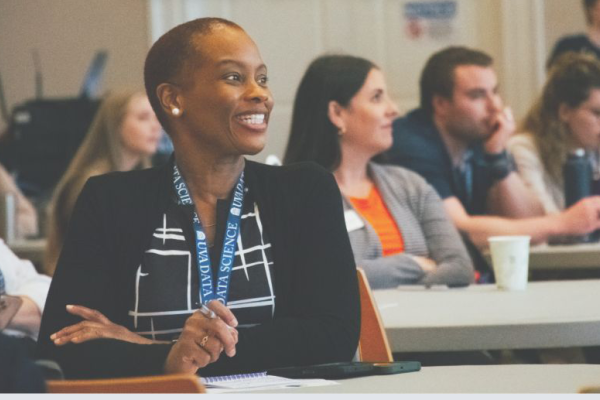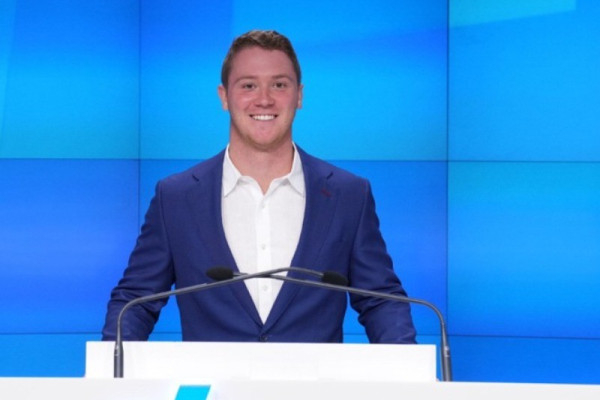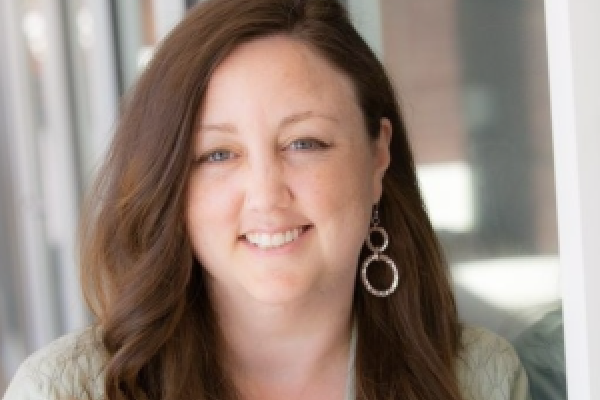
How data science transformed Travis Vitello’s career trajectory

Travis Vitello
Employment
Siemens Energy, Data Scientist
Education
M.S. in Data Science, University of Virginia
M.S. in Welding Engineering, The Ohio State University
B.S. in Mechanical Engineering, University of Florida
Alumni Travis Vitello’s background is in engineering, but his path to data science took shape when he realized that developing skills in data science could be a powerful addition to his technical expertise. Travis earned his M.S. in Data Science (MSDS) in the University of Virginia School of Data Science’s Online program and worked as a Data Science Tutor for the School of Data Science. Now, he works as a Data Scientist at Siemens Energy.
In this Q&A, Vitello discusses how his degree has impacted his career advancement, what a day in the life at his job looks like, as well as faculty and staff at the School of Data Science who impacted his data science journey. From realizing that data is everywhere, to learning practical information that reinforces how to develop a clear user story in the field, Vitello tells all about what he learned as a student.
Q: Walk us through what you did at work today.
My mornings typically start with alignment discussions involving a diverse group of international colleagues, including team members from India and Germany. Currently, I’m leading a study focused on designing tools for acquiring manufacturing data and developing processes to analyze that data. The objective is to gain insights into product quality, which I then report through dashboards for ease of interpretability to stakeholders.
Q: What did you learn in the MSDS program that you have found most useful in your career so far? And what do you wish you had learned?
The most valuable lesson I learned in the Online MSDS program is recognizing that data is everywhere, and the ability to wrangle and present it intelligently has provided significant value to my company. It allows us to move beyond relying on "gut feelings" and "historic intuition" when making decisions. As for what I wish I had learned, there are several commercial packages for building pipelines and presenting data that I’ve since picked up. However, the MSDS program gave me a strong foundational understanding that made it easier to adapt to these tools.
Q: How did the MSDS Capstone project prepare you for your current work?
The MSDS Capstone project was valuable in preparing me for my current work by reinforcing how to develop a clear user story, defining deliverables, and scoping a project effectively. It further provided experience in distributing responsibilities within a decentralized team and collaborating efficiently. Reporting to stakeholders during the project also helped me understand how to seek insights and direction while preparing and presenting results, which closely mirrors the work I do today.
Q: Were there specific classes, projects, or professors that you found particularly influential in preparing you for your career?
While the entire staff and faculty were fantastic, I found working with Professor Rafael Alvarado to be particularly inspiring. His enthusiasm for data science, especially his teachings on exploratory text analytics, really stood out to me. Professor Alvarado’s teachings helped reinforce the idea that data-driven insights can be uncovered in almost any context and that tools like Python make analyzing such data both accessible and practical. His guidance has had a lasting impact on how I approach problem-solving in my career.
Q: What networking opportunities or alumni resources played a role in securing your current position or aiding your professional development?
I’ve been fortunate to have my completion of studies at the University of Virginia recognized by leadership within my organization, with the university’s strong institutional reputation helping me stand out in my professional pursuits. Further, resources like Reggie Leonard have been outstanding in helping me prepare for job interviews, refine my resume, and overall make me more competitive when pursuing new career opportunities, allowing me to pivot from roles in engineering to landing a dream job in data science.
Q: How do you perceive the impact of your MSDS degree on your career advancement and opportunities?
The MSDS experience has been instrumental in my career advancement, equipping me with tools and skills that set me apart from colleagues. It has enabled me to take on greater responsibilities and uncover more value-added insights for my organization. While I deeply value my engineering background, the MSDS education has allowed me to enhance the methods of acquiring, analyzing, and reporting data far beyond what I could have achieved with engineering alone. By combining the technical discipline and attention to detail ingrained in engineering with the versatility of data science, I’ve been able to transcend traditional engineering roles and make an impact across other areas of my organization, significantly driving my career growth.
Q: Was there a student experience or classmate/cohort interaction during your time at the School of Data Science that stands out as particularly memorable or transformative for you?
I was fortunate to be part of a small, supportive cohort, where collaboration through discussion boards and synchronous study groups was a key part of the experience. While Zoom enabled us to stay connected remotely, one memorable moment was meeting Binyong Liang at the Crozet Library to work on a group project early in the program. I was living in Charlottesville at the time and still view that experience as helping to solidify the sense of community characteristic of the MSDS program.
Q: As you look ahead, where do you envision yourself professionally in the next 5-10 years? Are there specific career goals, projects, or milestones you aspire to achieve in the coming years?
With data science evolving rapidly, continuous learning will remain essential. In the next 5-10 years, I hope to still contribute to the technical development of data science solutions while growing into a leadership role, potentially heading a US-based data science team for my organization. I aspire to share my knowledge and experience with other talented data enthusiasts and professionals to drive my company's ongoing digitalization transformation.





